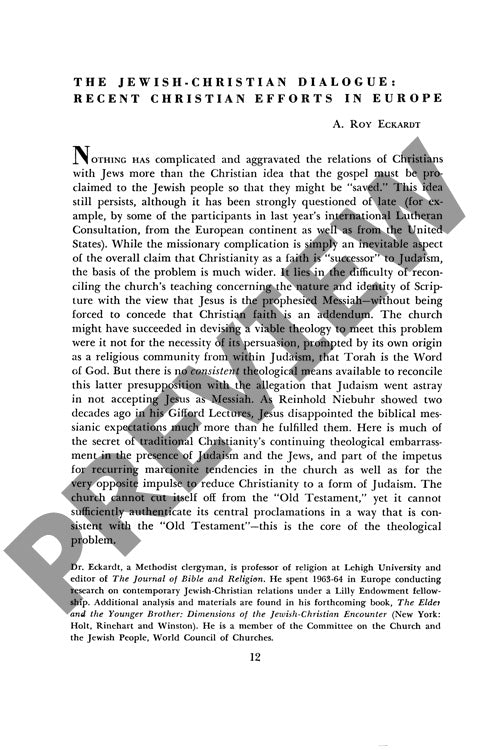The Jewish Christian Dialogue Recent Chr
Couldn't load pickup availability
A fundamental theological dilemma haunts modern Christian-Jewish dialogue: how can Christians reconcile their traditional missionary imperative with genuine interfaith respect? Field research across European Protestant and Catholic communities in 1963-64 reveals the persistent struggle to resolve this contradiction. Through analysis of theological literature, institutional developments, and educational reforms, the research uncovers how Christian organizations have begun acknowledging historical complicity in anti-Semitism and implementing liturgical reforms, yet remain trapped by conflicting doctrinal claims. The church simultaneously affirms the Torah as God's Word while maintaining that Judaism erred in rejecting Jesus as Messiah. Evidence from Dutch Reformed, Lutheran, and other denominations shows attempts to replace "missions" with "dialogue," though these efforts remain compromised by underlying conversionist assumptions. Two distinct interpretations of anti-Semitism emerge: one viewing it as social prejudice, another linking it to divine election theology. While contemporary initiatives include educational reforms, liturgical changes, and new institutional programs like the Evangelical Committee for Service to Israel, meaningful progress appears contingent on a more radical theological shift. The findings suggest that authentic dialogue requires Christians to recognize Jewish non-acceptance of Jesus as faithful obedience to God's Word, rather than as disobedience requiring correction through conversion.

More Information
-
Physical Description
-
Publication Information
Published 1965
ISBN
-
Publication Credits
A. Eckardt

